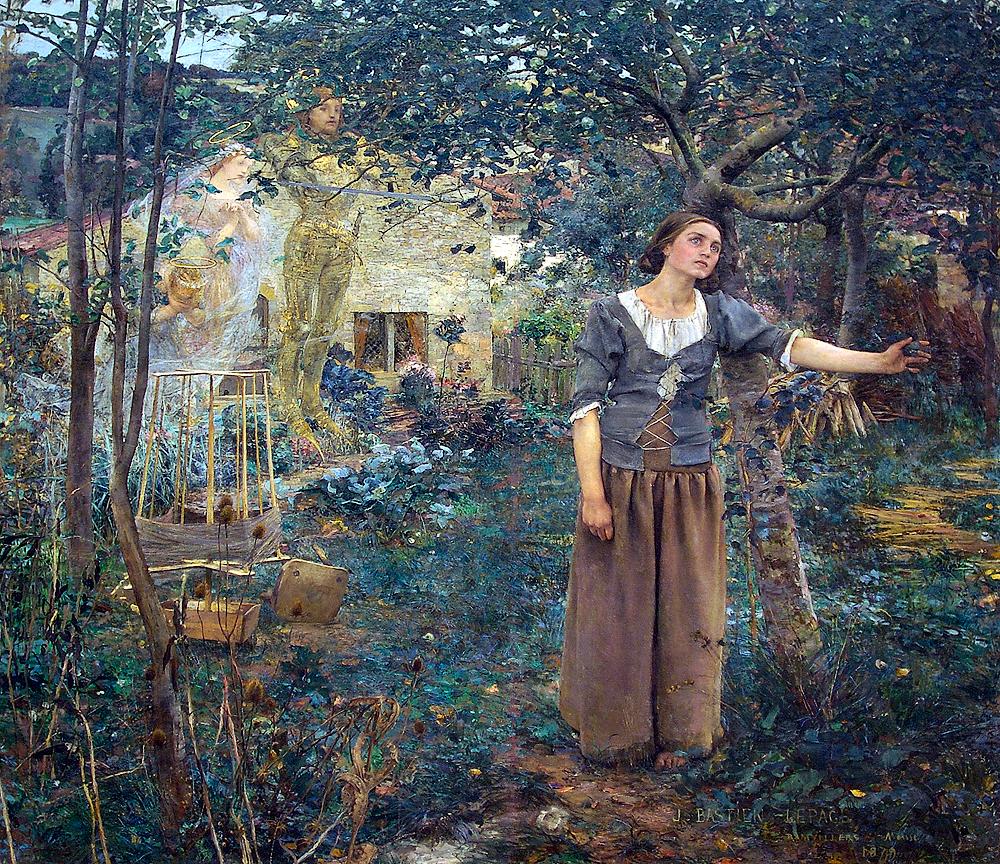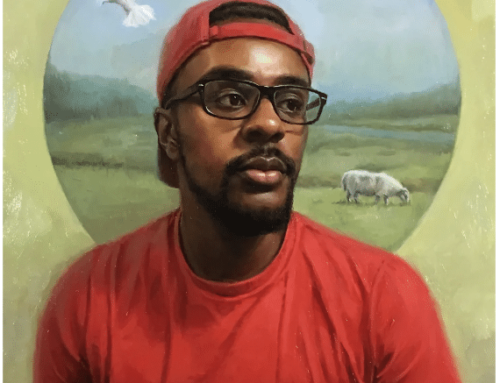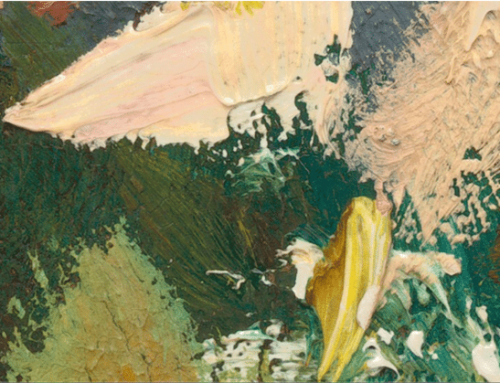“The powerful play goes on, and you may contribute a verse.”
-Walt Whitman
Many artists describe their daily devotion to their craft as “work,” but they don’t mean the kind of work that feels like drudgery-for-hire.
What artists do is indeed “work,” but this kind of work is undertaken for its own reward. Artistic work asks for commitment, stamina, and dedication, and in return it bestows many rewards upon the artist, not the least of which is the desire and drive to make more work. Another word for this is passion, the Greek root of which, significantly, means to suffer.
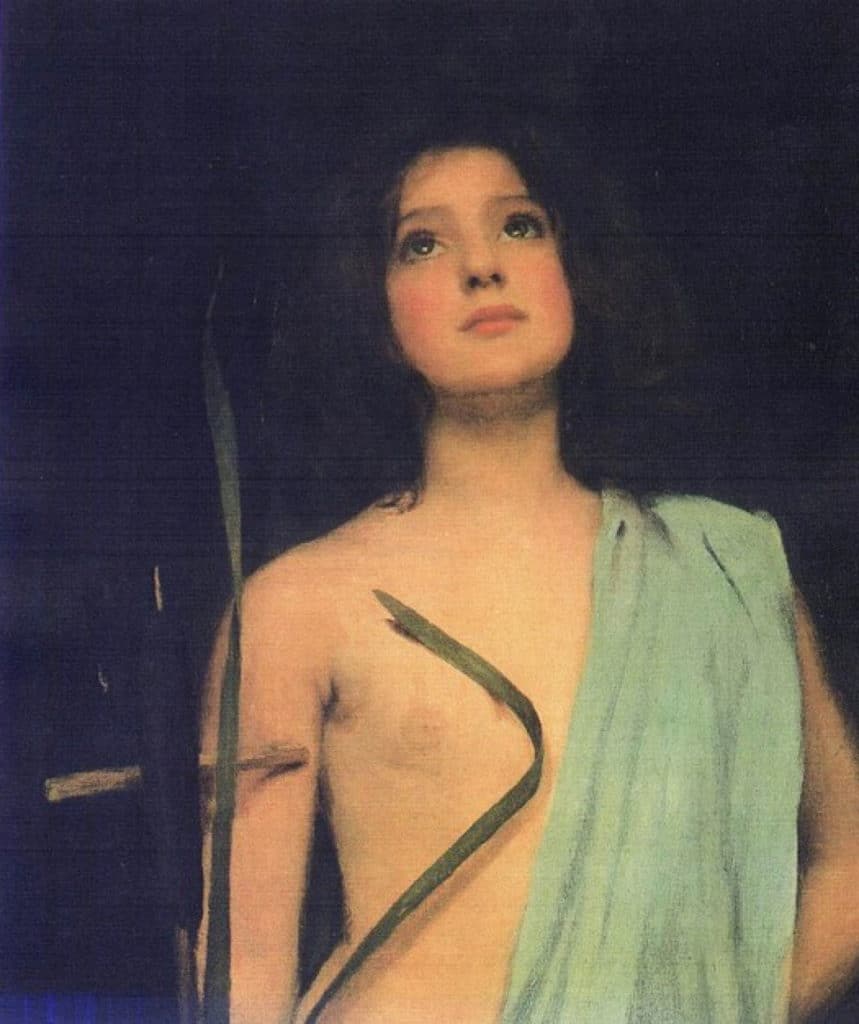
John William Waterhouse (1849–1917), St. Joan (date not known), oil on canvas, 48 × 55 cm.
We often think of “being called” as being singled out for a special destiny, chosen as the hero of some grand quest or Adventure. But that’s not it. In reality, it’s more like giving yourself permission to wander, to get lost even, to follow your own interests and just keep going. In our society that’s heroic enough.
It starts, perhaps, with a passing interest. Maybe it’s a song that forces you to listen or a book you can’t put down. Maybe it’s a painting or a print in a relative’s house, an image on the web, a photo in a magazine or in a book. Something catches your attention and swims back into your mind again and again, each time stoking a growing curiosity to know more.
Author David Spangler writes in his book The Call that everyone is called. No one doesn’t receive a call. That is because the call, or summons, is not really a divine or seemingly random, outside event, but rather a simply negging desire to discover our own potential. It’s not about feeling special – it’s a test, a challenge to do something worthwhile with the particular set of strengths you’ve been given, learned, or developed over time.
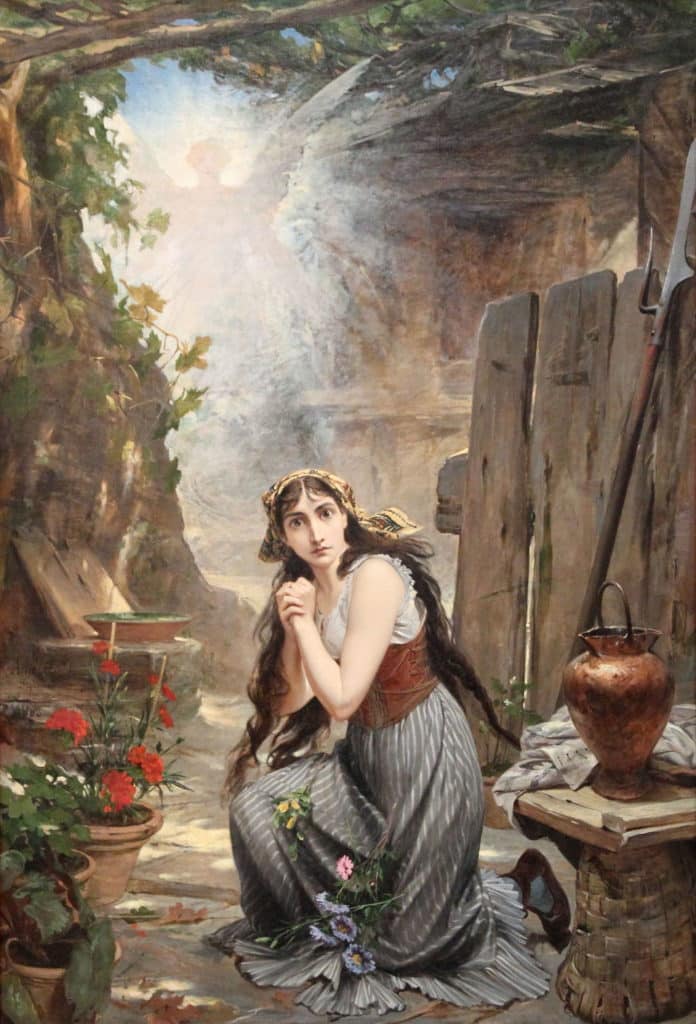
Pedro Américo (1843–1905), Joan of Arc Hearing Voices (1884), oil on canvas, 229 x 156 cm, Museu Nacional de Belas Artes, Rio de Janeiro, Brazil. Wikimedia Commons.
“Hearing the call” is rarely a Joan-of-Arc-literally-hearing-voices affair. Rather, it’s a slow, silent and gradual process. Crucially, at some point, you have to take a leap of faith and act – to answer the call by making a decisive, often difficult move – or else the “voice” will simply go away.
And if you ignore the call? The worst that can happen is that life will go on. But if you remain open to it, that little nagging voice will keep coming back.
Part of this means thinking of art not just in relation to oneself as the artists but in terms of what your art can give or “do for” others. Art, when it’s shared, becomes as much for others as for oneself. The summons, after all, turns out to be a call to contribute.
“The call to individuality is vital,” Spengler writes in The Call, “and at times there are tasks to be done in the world that fall specifically upon us to do. Yet there is another call that is equally important. It is the call to integrate our individuality into the community, into communion with humanity. It is the call not to separate but to blend, to contribute, to co-create, to serve.”
May you find your inspiration and your passion and as the Biblical passage has it, may you “live a life worthy of the calling you have received.” (Ephesians 4:1,)
In the Paint,
Chris

